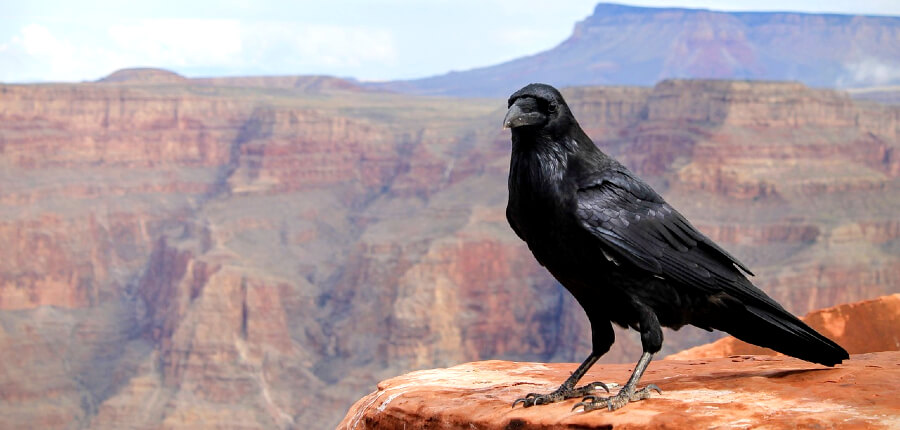Who are the smartest animals you interact with on a daily basis? If you’re tempted to say dogs or cats, look out the window and say hello to the crows watching you from the deck railing. Corvids—the family of birds that includes ravens, crows, and jays—are generally considered to be the brainiacs of the bird world, and a new study reveals that, like humans and great apes, ravens can plan ahead. They’re probably planning something as you read this.
Cognitive zoologist Mathias Osvath and his team at Lund University in Sweden trained ravens to drop a rock into a puzzle box in order to get a treat. That’s tool use. They then upped the ante by presenting the ravens with a series of challenges to see if the birds could pick the rock from among a group of small objects (yep, they could), barter with humans in order to get a reward (they did—exchanging a bottle cap for some tasty dog kibble), and forgo an immediately available treat in order to get a better one later (yes, again). The birds aced every test, demonstrating self-control, advanced reasoning, and planning in the process.
The study’s co-author, Can Kabadayi, told Motherboard that one raven even hacked the experiment. Not satisfied with simply dropping a rock into a tube in order to release a treat, the feathered prodigy got busy with some sticks. This bird constructed a layer of twigs inside the puzzle box tube and then pushed the twigs down using another stick—forcing the tube open. The researchers took the crafty corvid out of the study so that the other birds wouldn’t learn the trick.
Jays will re-hide a cache of food if they know they’ve been watched. Crows have different warning calls for different threats (one for a cat and another for a human walking a dog, for example)—and they can distinguish between individuals of the same species, realistically assess the dangers presented by each, and adopt distinct warning calls accordingly.
But corvids are far from the only birds to display avian ingenuity.
Chickens can count, have intricate social lives, and, like ravens, will forgo a treat in order to get a better reward later. Pigeons —who remember human faces and recognize people who are nice to them—stay together for life, and both parents share equally in nesting duty. A 10-year study of pigeon flight patterns conducted at Oxford University found that the birds, whose navigational abilities are legendary, rely more on their knowledge of human transport routes than on their internal magnetic compasses.
How often do we humans fail to recognize the intelligence of the other beings with whom we share this planet? As researcher Osvath puts it, “Yes, we humans are incredibly unique beings, but if that’s all you focus on, you miss the wider question of cognition and its amazing place in nature.… Instead of just focusing on ourselves as humans, we should see ourselves as part of this world. If this study changes even one or two people’s minds about that, I will be happy.”
You can help change minds by sharing this blog post on your Facebook page. Be sure to “like” and tag us at @PETA Prime.





